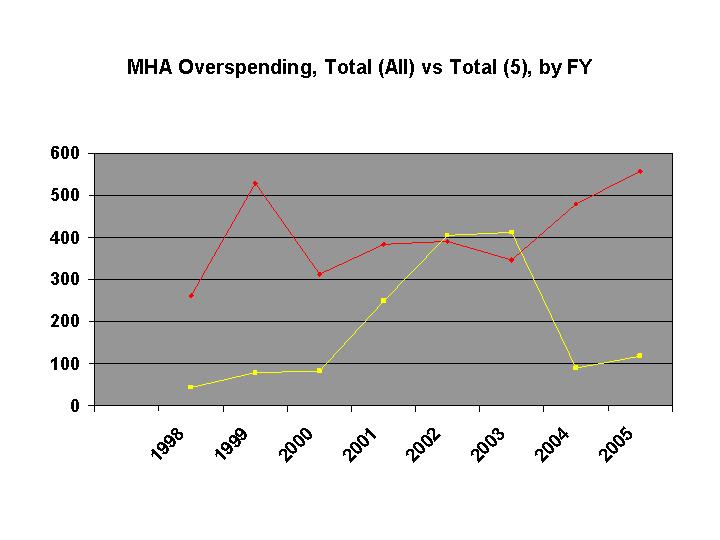Anyone who has been following the spending scandals in the Mother of Parliaments and in the Bow-Wow parliament cannot help but be struck by the contrasts.
For starters, voters in the United Kingdom actually know where the money went and who spent it. In Newfoundland and Labrador, voters have no idea where the bulk of the money went even three years later.
Then there is the matter of Mr. Speaker. In London, Speaker Michael Martin has been forced from office. In St. John’s Harvey Hodder – who took office two years before the scandal broke - stayed in place and has even been called as a witness in one of the criminal trials under way coming out of the scandal.
Hodder is a curious figure, even as speakers in the Bow-Wow parliament go. He did not prove himself particularly adept at keeping control of the House when it was in session. He never strayed far from partisan politics, even in his supposedly non-partisan role as Speaker. Things got so bad at one point that the opposition had to try and embarrass the old fellow out of the chair.
His curious behaviour once the scandal broke, showing up at the hospital bedside of the guy at the centre of the scandal and apparently deferring repeatedly to direction from the Premier’s Office, prompted a post here that called for his resignation. That’s just one of the many unfortunate moments in this mess when Hodder had the chance to do one thing but elected to do something else.
Even as he finally retired, Hodder couldn’t resist offering up a few self-serving explanations for his own spending habits.
All that makes it very odd that Hodder turned up as a witness in a court case but even the odd took a bizarre twist as Hodder’s comments appear to contradict many of the things already known about the scandal and his role.
For example, Hodder told the court funder oath that
… he wanted to look at the books that former legislature finance director Bill Murray, who also faces fraud charges, was keeping.
Hodder testified his request met with resistance, and Murray did not want to share his records.
Hodder said he was later reassured by the former clerk of the house, John Noel, that everything was fine, and Hodder should concern himself with other things.
Leave aside for a moment the obviously lackadaisical leadership style Hodder displayed by allowing his subordinate to refuse a direct request. Consider instead that when the scandal broke Hodder had a completely different explanation for his apparent inaction despite his own claims that he had misgivings about the House accounts:
"Early on, I expressed misgiving about some of the financial management practices," said Harvey Hodder, who became Speaker after the Progressives Conservatives took office in 2003.
But he said he was initially satisfied when a private accounting firm found nothing untoward in the legislature's spending and didn't flag what turned out to be nearly $3 million lavished on trinkets, gold rings and other baubles over the past seven years.
Was Hodder reassured by the Clerk or by an audit? There’s a big difference in the implications flowing from the two stories. The one continuous thread, though, is that Hodder was aware of problems but found some reason to go back to his office and not bother to exercise the control which he held by virtue of his office as Speaker.
He turned a blind eye.
And then once the scandal had been exposed, Hodder set about to blame others, first his predecessor and the members of the House executive committee in 2000 and then Hodder’s subordinate:
"That could only happen where one person is responsible for controlling the information," Hodder said.
One person wasn’t responsible, of course. He was allowed to function as he did by Hodder and others who have never been called to account for their inaction.
Hodder made some other curious claims under oath. Like this one about his knowledge of the system:
Hodder testified that MHAs were keenly interested in issues surrounding constituency allowances, poring over spending breakdowns and the limits published just after their annual release.
If this meant the breakdowns for each member then he should have noticed something much earlier than anyone else. But even if Hodder got fudged records, there is no mistaking the accounts maintained by the province’s comptroller general and published each year as the Public Accounts.
If Hodder indeed had such a “keen” interest then he would have noticed that in 2004 and 2005, the budget laid in front of the House of Assembly falsely reported that the members’ accounts were bang on budget when the Public Accounts showed them to be out of whack by about a half million each year.
Bond Papers noted this in August and December 2006 and the accounting was confirmed by the Green report on the spending scandal. neither the province’s auditor general nor anyone else has explained the overages in those two years as well as the discrepancy between the budget figures and the Public Accounts. The auditor general made no reference to these discrepancies in his annual reports for those years.
Then there’s another claim about the diligence with which Hodder kept his own track of his own spending:
Hodder testified he kept copies of every receipt, claim form, payment stub and other supporting documentation during his long career in provincial politics.
The auditor general’s report on constituency allowance spending by all members after 1989 showed that Hodder:
- double billed the legislature (albeit for $129)
- made donations of public money totalling over $30,000, and
- made alcohol only purchases out of his constituency allowance totaling over $1,100.
None of this was permitted under even the lax rules that applied during the scandal period. If Hodder kept as close a track of his spending as he said under oath, then he knew about his own inappropriate spending. When the report was released, incidentally, he attributed the alcohol purchase to a mistake in accounting. He also is in a position to identify specifically all the donations he made during his term in the legislature.
Now Hodder wasn’t the worst when it came to using public money for gifts to unnamed individuals and groups, but it is a bit rich for him to pass judgment on others when his own record is far from stellar. While Hodder may not have known of criminal activity, he certainly was aware of the sordid practice of using the constituency allowances as what amounted to a slush fund. He did nothing about it, by his own admission.
Did nothing, at all and yet Hodder found no shame in making this sanctimonious statement as he left politics:
"It is regrettable that there are hungry children in this province, in my former constituency, who could've benefited from some of that money."
That’s not all that is regrettable about the House of Assembly between 1996 and 2007, as the strange case of former Speaker Harvey Hodder shows.
-srbp-





